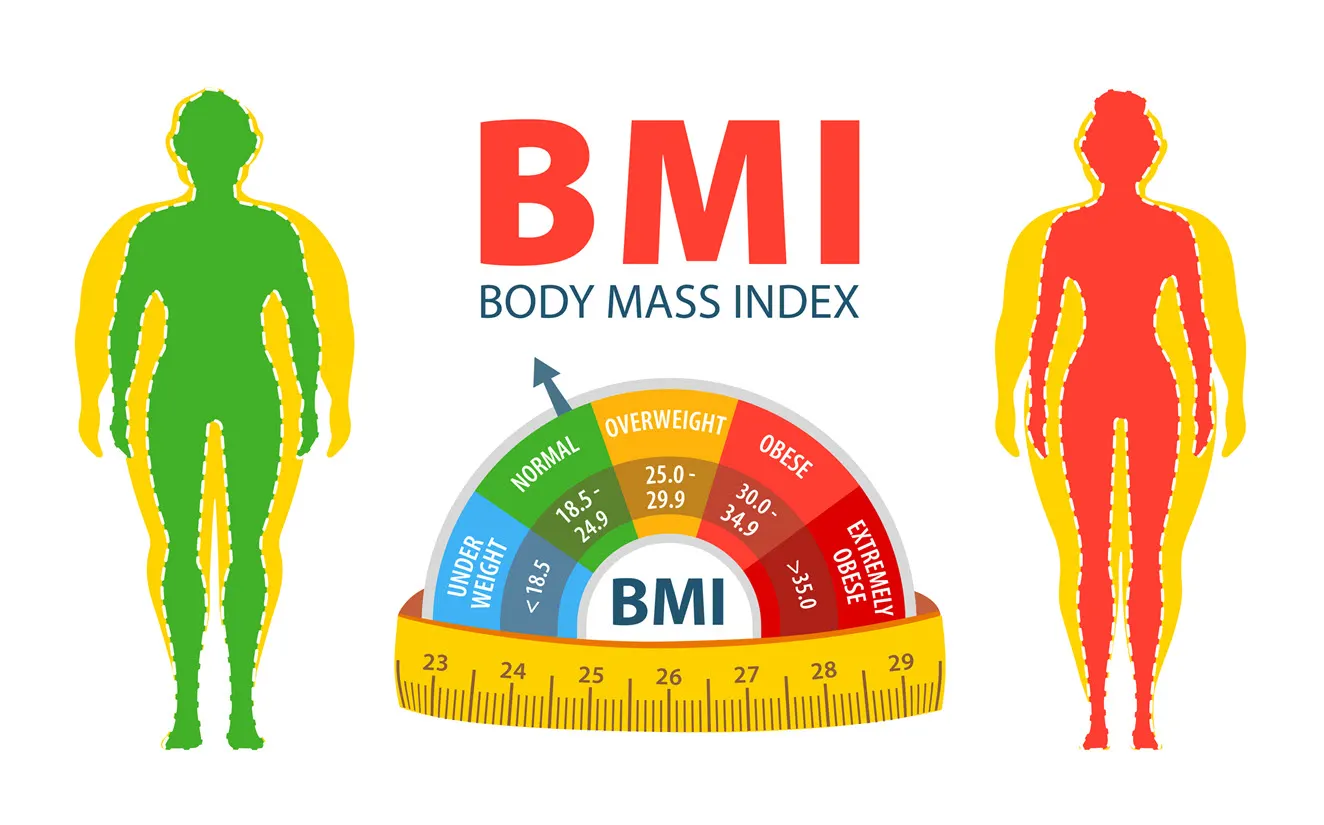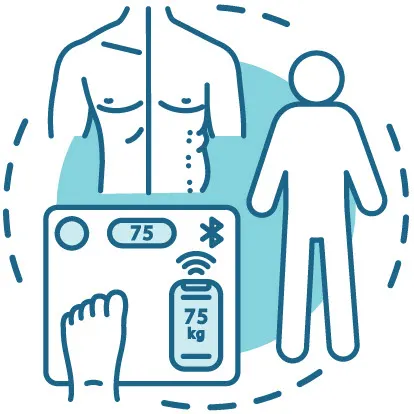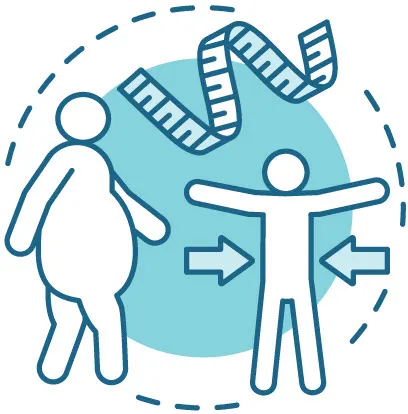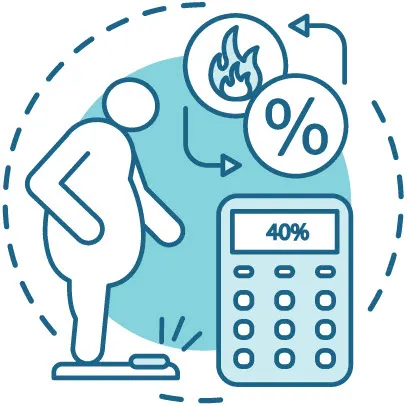
Body Mass Index Calculator (BMI)
What's Your Body Mass Index Number?

Written By: Eva Adams, Health Writer
Take this Free 60 second BMI quiz and get your total Body Composition numbers including:
(BMI) Body Mass Index
Calorie Calculator
(IBW) Ideal Body Weight
(BFP) Body Fat Percentage
Get your full personal Body weight profile by taking the quiz now.

Learn Your Complete Body Composition Profile With These Body Calculations... In One 60 Second FREE Quiz
Take this Free 60 second quiz to get all your body's (BMI) Body Mass Index, (BFP) Body Fat Percentage, (IBW) Ideal Body Weight and Daily Calorie Calculator, get all your numbers by taking this short quiz now!

BMI Calculator
BMI or Body Mass Index and it's a way to measure if you're too skinny, or carrying some extra pounds. Basically, it looks at your weight and height and gives you a number that tells you if you're in a healthy range or not.

Body Fat Percentage%
Body fat percentage or BFP, is basically the amount of fat you have in your body compared to everything else, like your muscles and bones. It's a way to see how much of your body is made up of fat.

Calorie Calculator
(BMR) Basal Metabolic Rate is basically the number of calories your body burns when you're at rest. It's the amount of energy your body needs just to keep your body functioning.
Frequently Asked Questions?
What is considered a healthy BMI number?
BMI between 18.5 and 24.9 is considered healthy. Of course, this can vary depending on factors like your age, gender, and muscle mass. But as a general rule, falling within that range is a good sign that you're at a healthy weight.
What what BMI is considered obese?
BMI of 30 or higher is considered obese. This means that you have a higher amount of body fat than is considered healthy, which can put you at risk for health problems like heart disease, diabetes, and joint pain.
What is a good BMI number for Women?
In general, a BMI between 18.5 and 24.9 is considered good for both men and women. Falling within this range is associated with a lower risk of health problems like heart disease and diabetes.
What's a good BMI for Men?
BMI between 18.5 and 24.9 is considered good for both men and women. Falling within this range is associated with a lower risk of health problems like heart disease and diabetes.
How to calculate body fat percentage?
To calculate your body fat percentage using the BMI method, you'll need to know your BMI and your gender. Once you have your BMI, you can use a formula to estimate your body fat percentage based on your gender.
For women, the formula is: 1.20 x BMI + 0.23 x Age - 5.4
For men, the formula is: 1.20 x BMI + 0.23 x Age - 16.2
So, let's say you're a 30-year-old woman with a BMI of 25. Here's how you would calculate your estimated body fat percentage:
1.20 x 25 + 0.23 x 30 - 5.4 = 30.2% body fat
Keep in mind that this is just an estimate, and there are other methods of calculating body fat percentage that may be more accurate. But using the BMI method can be a helpful way to get a general idea of your body fat percentage.
How many calories do I need per day?
You would need your Basal Metabolic Rate (BMR), this is the number of calories your body burns just to keep its basic functions going. But how many calories do you need per day based on your BMR?
Well, there are a few different factors that can affect how many calories you need, such as your age, gender, weight, and activity level. But as a general rule, you can estimate your daily calorie needs by multiplying your BMR by a factor that takes your activity level into account.
For example, if your BMR is 1500 calories and you're moderately active, you can estimate your daily calorie needs by multiplying 1500 by 1.55. This gives you a total of 2325 calories per day.
How many calories should I eat per day to lose weight?
As a general rule, you need to create a calorie deficit in order to lose weight. This means eating fewer calories than you burn each day. To do this, you can aim to eat 500-1000 fewer calories than you burn per day, which can lead to a weight loss of 1-2 pounds per week.
To figure out how many calories you burn each day, you can use your Basal Metabolic Rate (BMR) as a starting point, and then factor in your activity level. There are many BMR calculators available online that can help you estimate your daily calorie needs.
Once you have an estimate of your daily calorie needs, you can subtract 500-1000 calories per day to create a calorie deficit and start losing weight.
How can I calculate my ideal body weight?
One common one is the Hamwi method. Here's how it works:
For women: Start with 100 pounds for the first 5 feet of height, and then add 5 pounds for each additional inch. So if you're 5'6", your ideal body weight would be 130 pounds (100 + 5x6).
For men: Start with 106 pounds for the first 5 feet of height, and then add 6 pounds for each additional inch. So if you're 5'10", your ideal body weight would be 178 pounds (106 + 6x10).
Keep in mind that these formulas are just estimates, and your ideal body weight can vary depending on factors like your muscle mass, bone density, and overall health.
Ready To Know Your Numbers?
Take this Free 60 second quiz to discover your body's (BMI) Body Mass Index, (BFP) Body Fat Percentage, (IBW) Ideal Body Weight and Calorie Calculator, get all your numbers by taking this 60 second quiz now!
About Us:
Important Links:
Disclosures:
